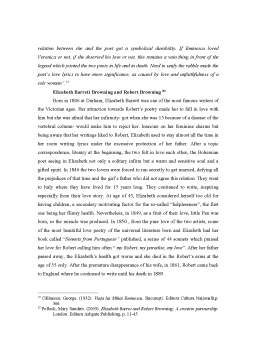Extras din proiect
I. Love, as an eternal feeling
1.1. There is nothing without love
For the romantic visionaries, love was a mysterious force which suddenly could become a master over everyone, an ecstatic feeling lived once in life. Love, they thought, was just a problem that involved the heart only, something that could not be understood, but lived. Love could overcome everything and lasted eternally.
In different ways, all of us loved once a life at least, and at least for a while, each of us felt the unforgettable taste of the feverish waiting, desperate hope, shared romanticism and the distressing jealousy.
Since the beginning of the world, the youths and olds alike, talked about love. Saint Valentine together with the ‘’lovely’’ Cupid played their roles to the letter because “there is nothing without love”. Love stories covering all feelings from the ideal love and the romantic love up to the obsessive passion and each romantic couple seems to be found itself in different other special love story. Love is a “big thing” and that could be noticed since ancient times. Each heart in love looks for a sincere and loyal love, a love built on romanticism and confidence.
Love was glorified for numberless times, under the most different forms of expression and manifestation. Shown in pictures and songs and beautiful words, since the beginning of the world, in all seasons and all ages, “love is a force, stronger than any other one. It is invisible - it cannot be seen or measured – although it could change you in a second and give you more happiness than anything else you have ever had” (Barbara de Angelis).
Attracted in an impressive number by an assembly of mutual features, the writers of the same ages formed the so-called literary currents.
Depending on the period when they went on, the literary currents are divided in ten large epochs of the literature: humanism, classicism, enlightenment, romanticism, realism, naturalism, parnassianism, symbolism, expressionism, postmodernism.
Romanticism existed always in latency. Striving for emerging to light since in the dramaturgy of the big William Shakespeare, it will become more evident at the beginning of the 19th century, as a violent reaction against the aesthetical rigidity of the classical authors, to rehabilitate the human individuality, first of all its psychological complexity. That was the time when the European middle classes, in their revolutionary impetuosity, broke the rusted chains of the feudalism as transcended by the evolution of the human society.
A theorist of the European romanticism was Victor Hugo who traced and identified the directions and features of that cultural current in “Preface” to the drama “Cromwell” (1827), a real manifesto.
Between the European representatives of the literary romanticism the following authors can be enumerate : Victor Hugo , Lamartine, Vigny, Musset (France) , Schiller, Heine, Grimm (Germany), Byron, Shelley, Keats, Scott (England), Manzoni, Leopardi (Italy), Puskin, Lermontov (Russia).
D. Popovici defined the romanticism in its writing “Romanian Romanticism”, as a contrast between realism and classicism: “In contrast with the romanticism, the realism begins from intuition of the objective reality; in contrast with the romanticism, the classicism operates with a world which keeps contingency with the real world although it is a construction of the human judgment. But the Romanticism works with an own world where the feelings and fantasy remain determinining. More the realism and less the classicism, subordinate the creative subject of the objective agent while the romanticism emphasizes, with all its energy, the subjective agent.”
Romanticism is a literay current and a way of living, both for the individuals and cultures. It made itself conspicuous at the end of the 18th century and extended up to the second half of the 19th century. The romantic author, characterized by a certain vocation of the absurd,could be defined by hypersensiveness, a kind of feeling drunkness, a permanent tension and irremediable melancholy, a capitalization of the mythical fund by means of symbols and metaphors.
Firstly affirmed in England and then in Germany, the romanticism appeared in the French literature during the first years of the 19th century.
Preview document
Conținut arhivă zip
- Love, as an Eternal Feeling.doc


























